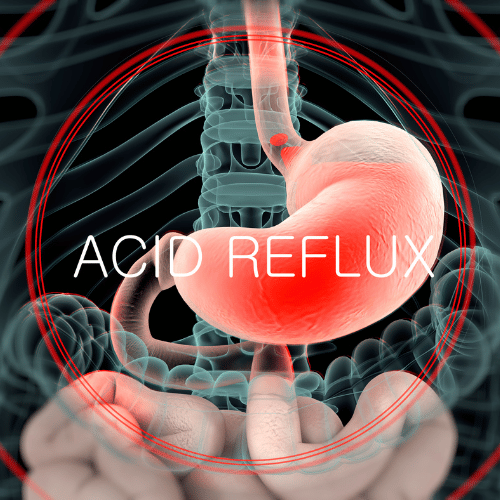
5 Best Drinks To Fight Acid Reflux
If you’re someone who frequently experiences the uncomfortable symptoms of acid reflux, such as heartburn, regurgitation, or a sour taste in your mouth, then you know how important it is to find relief.
Acid reflux occurs when the lower esophageal sphincter (LES), a muscular ring that separates the stomach from the esophagus, fails to close properly, allowing stomach acid to flow back up into the esophagus.
While medication and lifestyle modifications play a key role in managing acid reflux, choosing the right drinks can also provide soothing relief.
From natural remedies to traditional favorites, we’ll uncover the science behind why these drinks are beneficial and how they can contribute to your overall digestive health.
So, if you’re tired of dealing with the discomfort of acid reflux and are searching for drinks that can provide relief, you’re in the right place.
We’ve done the research and gathered the best options for you to incorporate into your daily routine.
Now, let’s raise a glass to better digestion and explore the five best drinks to fight acid reflux.
Number 5. Ginger Tea
Ginger has been valued for centuries for its medicinal properties, particularly its soothing effects on the digestive system.
It contains bioactive compounds, including gingerols and shogaols, which have anti-inflammatory and antioxidant properties that can help alleviate digestive discomfort.
Studies have shown that ginger can reduce inflammation in the esophagus, providing relief from acid reflux symptoms.
Research published in the Journal of Gastroenterology and Hepatology has highlighted the potential benefits of ginger in managing acid reflux.
A study conducted on individuals with reflux symptoms found that ginger supplementation significantly reduced the frequency and severity of acid reflux episodes.
Another study published in the journal Molecular Research and Food Nutrition demonstrated that ginger extract can inhibit acid reflux by modulating the function of the lower esophageal sphincter and reducing inflammation in the esophagus.
By sipping on a warm cup of ginger tea, you can harness the therapeutic properties of ginger to calm inflammation in the esophagus and reduce acid reflux symptoms.
The warm liquid can also help soothe the digestive tract and provide a comforting sensation.
Additionally, ginger tea can promote better digestion and alleviate other gastrointestinal issues, such as bloating and nausea.
When preparing ginger tea, simply grate or slice fresh ginger root and steep it in hot water for a few minutes.
You can also find ginger tea bags or ginger powder in stores for convenience.
Adding a touch of honey or lemon can enhance the flavor and provide additional soothing benefits.
However, it’s important to note that ginger may not be suitable for everyone.
Some individuals may experience mild side effects, such as heartburn or stomach upset, when consuming ginger.
So it’s advisable to start with small amounts and monitor your body’s response.
If you have a pre-existing medical condition or are taking medications, it’s always best to consult with a healthcare professional before incorporating ginger into your diet.
Number 4. Aloe Vera Juice
Aloe vera, commonly known as the “plant of immortality,” has been revered for centuries for its healing properties.
It is widely used in skincare products, but its benefits extend beyond external applications.
Aloe vera juice, when consumed in small amounts, can also provide relief from acid reflux symptoms.
Aloe vera contains compounds that have anti-inflammatory and soothing effects on the digestive system.
One of the key components is polysaccharides, which help reduce inflammation and promote healing in the esophagus.
Research has shown that aloe vera can protect the esophageal lining from damage caused by acid reflux and alleviate symptoms such as heartburn and regurgitation.
A study published in the Journal of Traditional Chinese Medicine investigated the effects of aloe vera juice on individuals with gastroesophageal reflux disease (GERD).
The study found that aloe vera juice significantly reduced the frequency and severity of acid reflux symptoms, including heartburn and chest pain.
Participants reported improved overall well-being and a decrease in the need for acid-blocking medications.
When selecting aloe vera juice, it is important to choose a pure and high-quality product.
Look for aloe vera juice made from the inner gel of the plant without any added sugars or artificial ingredients.
Start by consuming a small amount, such as a quarter cup, to assess your body’s response.
It’s worth noting that while aloe vera can provide relief for many individuals, some people may be sensitive or have an adverse reaction to it.
So if you experience any discomfort or unusual symptoms after consuming aloe vera juice, discontinue use and consult with a healthcare professional.
Incorporating aloe vera juice into your routine can be as simple as drinking a small amount before or after meals.
It is best to consult with a healthcare professional to determine the appropriate dosage and timing for your specific needs.
At Number 3. Chamomile Tea
Chamomile tea, with its gentle and calming properties, has been cherished for centuries as a natural remedy for various ailments, including digestive issues.
This herbal tea offers potential benefits for individuals seeking relief from acid reflux symptoms.
Chamomile contains compounds known as flavonoids, which possess anti-inflammatory properties.
These flavonoids help reduce inflammation in the digestive tract, including the esophagus, and alleviate discomfort caused by acid reflux.
Chamomile tea also acts as a relaxant, helping to soothe the muscles in the digestive tract and promote healthy digestion.
Several studies have explored the potential therapeutic effects of chamomile tea on gastrointestinal health.
A randomized controlled trial published in the journal Molecular Medicine Reports investigated the impact of chamomile extract on acid reflux symptoms.
The study found that chamomile extract significantly reduced the severity and frequency of acid reflux symptoms, including heartburn and regurgitation, compared to a placebo group.
Another study published in the European Journal of Medical Research examined the effects of chamomile tea on gastroesophageal reflux disease (GERD) symptoms.
The findings demonstrated that regular consumption of chamomile tea led to a significant decrease in acid reflux symptoms and improved overall well-being in individuals with GERD.
To enjoy the benefits of chamomile tea, steep a chamomile tea bag or loose chamomile flowers in hot water for a few minutes.
Drink it warm and savor its soothing flavor.
Remember to choose high-quality, organic chamomile tea to ensure the best possible taste and therapeutic benefits.
Also, as with any herbal remedy, it is essential to be mindful of potential allergies or adverse reactions.
If you have known allergies to plants in the daisy family, such as ragweed or chrysanthemums, exercise caution when consuming chamomile tea.
It is advisable to consult with a healthcare professional, especially if you have any pre-existing medical conditions or are taking medications that may interact with chamomile.
Number 2. Almond Milk
For individuals dealing with acid reflux, finding suitable alternatives to dairy milk can be beneficial.
Almond milk, in particular, is often recommended as a viable option that may help alleviate acid reflux symptoms.
One of the reasons almond milk is considered a good choice for acid reflux sufferers is its alkaline nature.
Alkaline substances have the ability to neutralize stomach acid, providing relief from the discomfort associated with acid reflux.
By introducing alkaline almond milk into your diet, you can potentially help balance the acidity in your stomach, reducing the likelihood of acid reflux episodes.
In addition to its alkaline properties, almond milk offers several other advantages for individuals with acid reflux.
It is naturally lactose-free, making it suitable for those who are lactose intolerant.
It also tends to be lower in fat than whole dairy milk, which can be beneficial for individuals prone to acid reflux symptoms triggered by high-fat foods.
When choosing almond milk, it is important to opt for unsweetened varieties.
Some commercially available almond milk products may contain added sugars, which can potentially exacerbate acid reflux symptoms.
By selecting unsweetened almond milk, you can enjoy the benefits without unnecessary sugar intake.
While almond milk can be a valuable addition to your diet to manage acid reflux, it is crucial to consider individual factors and potential sensitivities.
Some individuals may experience allergic reactions or digestive discomfort related to almonds or other ingredients in almond milk.
If you have known allergies or sensitivities, it is advisable to consult with a healthcare professional before incorporating almond milk into your diet.
Furthermore, it is important to note that everyone’s digestive system responds differently to various foods and beverages.
While almond milk may be suitable for many individuals with acid reflux, it is always wise to listen to your body and monitor how it specifically affects your symptoms.
If you notice any adverse reactions or increased acid reflux symptoms after consuming almond milk, it may be necessary to explore other alternatives or consult with a healthcare professional for further guidance.
Incorporating unsweetened almond milk into your diet can be a delicious and refreshing way to help manage acid reflux symptoms.
Enjoy it on its own, in smoothies, or as a substitute for dairy milk in your favorite recipes.
Number 1. Water
When it comes to managing acid reflux, we often overlook the power of plain water.
It may seem too simple to be effective, but staying hydrated by drinking enough water can actually play a significant role in preventing acid reflux episodes and alleviating symptoms.
Water works in several ways to support digestive health and combat acid reflux.
Firstly, drinking water helps dilute stomach acid, reducing its corrosive effect on the delicate tissues of the esophagus.
By diluting the acid, water can provide relief from the burning sensation and discomfort associated with acid reflux.
Moreover, water acts as a natural cleansing agent, washing away any acid that has refluxed into the esophagus.
This can help alleviate inflammation and irritation, promoting healing and reducing the frequency and intensity of acid reflux symptoms.
Proper hydration is essential for overall digestion and maintaining a healthy gastrointestinal system.
When we are adequately hydrated, our digestive processes can function optimally, reducing the likelihood of acid reflux episodes.
Water helps ensure the smooth movement of food through the digestive tract and aids in the breakdown and absorption of nutrients.
In addition to its direct benefits for acid reflux, drinking water offers numerous other advantages for overall health.
It supports the proper functioning of various bodily systems, including circulation, metabolism, and detoxification.
Staying hydrated can also help manage weight, as thirst can sometimes be mistaken for hunger, leading to unnecessary snacking or overeating.
It is important to note that while water is generally beneficial for acid reflux, the timing and quantity of water consumption can play a role.
Drinking water before meals can help create a sense of fullness and prevent overeating, which can trigger acid reflux.
However, drinking large amounts of water during meals may increase the likelihood of acid reflux by diluting stomach acid too much.
It is also worth considering the quality of the water you drink.
Opting for filtered or purified water can help eliminate potential contaminants and ensure the best possible hydration for your digestive health.
Remember that everyone’s body is unique, and individual responses to water intake may vary.
Some individuals may find relief from acid reflux symptoms by sipping water throughout the day, while others may need to monitor their water intake more carefully during meals.
It is important to listen to your body and adjust your water consumption based on your specific needs and preferences.
And there you have it, our list of the five best drinks to fight acid reflux.
We’ve explored natural remedies and soothing beverages that can provide relief from the discomfort of acid reflux symptoms.
Incorporating these drinks into your daily routine can help calm inflammation, reduce acidity, and promote better digestive health.
Remember, everyone’s experience with acid reflux is unique, so it’s important to listen to your body and find what works best for you.
While these drinks have shown promising results in alleviating acid reflux symptoms, it’s always advisable to consult with a healthcare professional for personalized advice and guidance.
Cheers to a happy, healthy digestive system and a life free from acid reflux discomfort.
And remember, small changes in your daily routine can make a big difference in managing your acid reflux symptoms.









